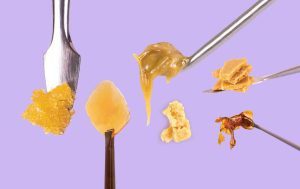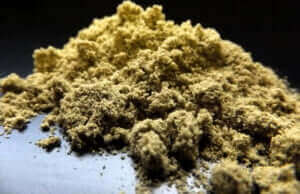Cannabis in Switzerland
Switzerland, celebrated for its stunning landscapes and efficient governance, has a unique position on cannabis that sparks both interest and debate. Understanding the legal intricacies of cannabis in Switzerland, including whether weed is legal in Switzerland and the specific Switzerland marijuana laws, is vital for visitors and residents alike. The country’s sophisticated legal framework on cannabis Switzerland differentiates between various forms of the plant. This article offers an in-depth look at the Swiss cannabis conundrum from a legal perspective, shedding light on its history, current regulations, medical applications, consumption limits, its impact on tourism and the economy, and the potential future of cannabis legalization in the nation.
Understanding the history of cannabis laws in Switzerland
To comprehend the present-day legal framework of cannabis Switzerland, one must delve into the historical context of Switzerland weed laws. Originally outlawed in the early 20th century due to international agreements and the worldwide anti-drug movement, Switzerland shifted towards a more pragmatic approach by decriminalizing the possession of small amounts for personal use in 2013. This was in line with a harm reduction strategy and aimed at better utilizing law enforcement resources. This progressive step, indicative of a change in Swiss drug policy, was a clear move away from the times of outright prohibition, raising questions about what drugs are legal in Switzerland.
Current regulations and restrictions on Weed in Switzerland
While the possession of minor amounts of cannabis is decriminalized in Switzerland, it’s crucial to note that the cultivation, sale, and distribution of cannabis are still illegal. Individuals are allowed to have up to 10 grams for personal use, avoiding criminal charges, but any activities related to the grow, supply, or sale of cannabis are strictly forbidden by law. The Swiss approach to cannabis regulation is to prioritize personal use over commercial activities, striking a balance between personal freedom and public health.
Is Pot Legal In Switzerland?
Understanding the subtleties of Switzerland’s cannabis decriminalization is key. Possessing small quantities is allowed, but having more than the 10 grams threshold can lead to legal consequences, such as fines. Furthermore, public possession or use of cannabis, especially THC, is still punishable with fines due to stricter regulation in public spaces. It’s essential to navigate these laws carefully to avoid criminal penalties and ensure that personal freedom is exercised within the confines of the law.
Exploring the medical cannabis industry in Switzerland
Switzerland is home to a thriving medical cannabis sector, granting patients access to cannabis-based medicines for various health benefits. With a doctor’s prescription, patients can acquire medical cannabis products, including oils and capsules, which are regulated to guarantee safety and effectiveness. Swiss medicinal cannabis, particularly cannabidiol (CBD) and therapeutic cannabis, is primarily used for alleviating symptoms associated with chronic pain, multiple sclerosis, and epilepsy, showcasing Switzerland’s leadership in medical cannabis innovation.
The role of hemp and CBD in Swiss cannabis laws
In the realm of Swiss cannabis legislation, hemp and CBD (cannabidiol) hold significant positions. Hemp, defined as cannabis with less than 1% THC content, is legally grown and sold in Switzerland, renowned for its versatility in products like textiles, food, and building materials. CBD, appreciated for its non-intoxicating effects, is legal and readily available, contributing to therapeutic benefits without the health risks associated with higher THC levels. The widespread availability of hemp and CBD underscores Switzerland’s progressive stance on cannabis.
Switzerland Cannabis consumption and possession limits
As noted earlier, Switzerland allows the possession of up to 10 grams of cannabis for personal use, free from criminal prosecution. However, it’s important to recognize that each canton can enforce stricter rules on possession limits or public consumption bans. To steer clear of legal troubles, familiarizing oneself with the canton-specific regulations is advised, ensuring that use is allowed and in compliance with local laws.
The impact of Swiss cannabis laws on tourism and the economy
Switzerland’s progressive cannabis laws Switzerland have become a pivotal factor in shaping its tourism and economy, luring visitors intrigued by the nation’s liberal policies on personal possession and consumption of marijuana Switzerland. While recreational use remains prohibited, the country’s tolerant approach has bolstered its tourism sector, making it a hotspot for Switzerland weed enthusiasts from around the globe. It’s crucial to note, however, that the Swiss government maintains a neutral stance on cannabis tourism, expecting visitors to strictly comply with local laws and regulations. Furthermore, the expanding medical cannabis industry has been a boon to Switzerland’s economy, creating jobs and spurring innovation in research and development.
Challenges and controversies surrounding Swiss cannabis laws
The Swiss cannabis laws are not without their challenges and controversies. Critics argue that the current legal framework inadvertently supports a gray market, a consequence of the ban on cannabis production and sale. This situation leads to unregulated products that pose safety concerns. Moreover, the disparity in regulations across cantons and vague legal provisions create a complex environment for law enforcement and those attempting to abide by the law. These complications underscore the need for comprehensive review and potential reforms to forge a more cohesive and effective drug policy in Switzerland, a task that faces both opposition groups and the support of cannabis advocates.
The future of cannabis legalization in Switzerland
The path toward cannabis legalization in Switzerland is fraught with uncertainty, as the growing public support for more lenient policies is met with the government’s prudent stance, which takes into account public health, international commitments, and societal implications. The introduction of pilot trials to evaluate the effects of a regulated cannabis market represents a significant step forward, providing essential data and insights. As Switzerland considers adapting its drug policy in light of the changing international cannabis scene, these pilot projects may set the stage for future legalization of adult use, potentially positioning Switzerland alongside other nations where weed legal in Switzerland could become a reality, influencing both import and export dynamics.
Conclusion
Unraveling the marijuana in Switzerland conundrum reveals a complex legal framework that strives to balance individual liberties with public health priorities. Switzerland’s avant-garde position on cannabis, underscored by the decriminalization of personal possession, a thriving medicinal cannabis sector, and the embrace of hemp and CBD products, reflects the country’s innovative approach to this controversial herb. Despite persistent challenges and debates, Switzerland is dedicated to ongoing assessment and potential legislative adjustments. Moving forward, the nation is poised to utilize evidence-based research and thoughtful analysis to craft a legal structure that acknowledges the increasing acceptance of cannabis’s health and therapeutic advantages, potentially leading to a future where is weed legal in europe.






